Honesty. That is the number one thing I always appreciate about Detroiters. The people of Detroit walk and talk in their truth. Our grantees and community partners work and act on behalf of truth, with honest assessments of what we need to do to create the future our children deserve. That grounding in truth makes racial healing feel possible and like it is a viable pathway to racial equity and systemic change.
Detroiters held eight events for the National Day of Racial Healing and Michigan-based organizations hosted 25 across the state – which accounts for nearly 10% of all events nationwide! It’s safe to say, racial healing is a part of our ecosystem now.
I was honored and privileged to be a fly on the wall at two of the events and to host a third along with our team at WKKF’s Detroit office. First, I attended a lunchtime discussion at University of Detroit-Mercy about how race and racism impact everyone. Then, I participated in a portion of Wayne State University’s daylong event, Rest & Play: A Joyful Path to Healing from Racism, where healing practitioners guided us through experiences and activities that we can also use on our own individually and in communities.
My colleagues and I take as many opportunities as we can to pop-in on community events, especially ones that are not WKKF-led. I call it shoe-leather philanthropy: hitting the streets, being a community member with community and of community.
Community keeps you honest. Community tells you what you need to know, even if you don’t think you need to know it.
Honesty is also front and center on the National Day of Racial Healing. It’s a day to humble yourself and sit in the space of truth-telling. We think that’s going to be a painful process – to both hear the truth and speak our truths. In many ways it is – there’s no getting around the fact that racism has harmed us and disconnected us.
But the beautiful thing is, when we can express and hear truth, the way forward starts to become clearer. Once we start telling the ugly truth about the past, we also have to tell the truth about the present. We have to ask, how are we doing today in our pursuit of a better future for our children? It leads us to think about what our actions need to be in order to improve outcomes and conditions for children and families in places like Detroit.
Truth-telling also leads to trust-building, which I saw firsthand among the grantee partners who joined us at WKKF’s Detroit office. We planned to watch the NBC News Now special event, as a prompt for our discussion, but technology was not our friend. We had the video queued up, ready to go, and suddenly the screen went blank. Everyone kind of looked at each other and decided our own experiences could take the spotlight: we have our own journeys and accumulated knowledge as people living within racism and working on the frontlines of racial equity.
Before long, I noticed different grantee partners clustering together and finding commonality and alignment. I saw grantee partners saying “Hey, I’m working on this piece in the education space and you’re working on this piece in the health equity space. How can we connect and coordinate, because we’re serving the same children and families?” Partners on the east side of Detroit realized that folks in the room were doing similar work on the west side of the city and they could learn from one another. From that starting point, we each committed to actions we will take next week and next month and to reflecting together on those steps in the near future.
Collaboration has a multiplier effect on our efforts, but collaboration happens best when there’s trust. These honest, frank, earnest racial healing conversations incubate the connection, trust and collaboration we need to move forward together.
Header photo: WKKF’s Detroit and Michigan teams in the Detroit office, taken during their National Day of Racial Healing event and sporting lots of Michigan pride.

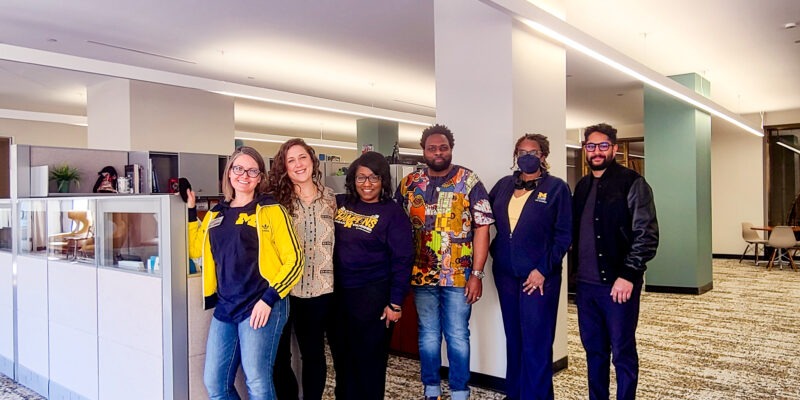
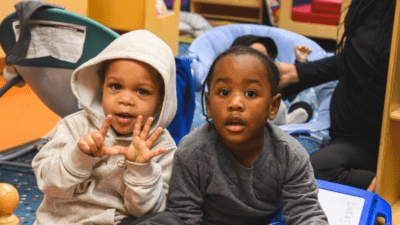

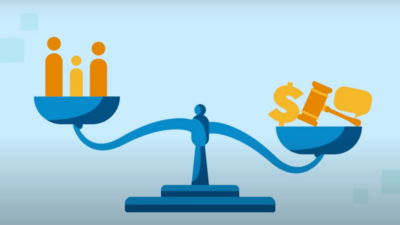
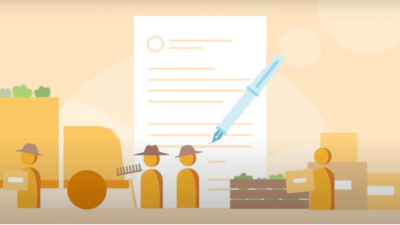
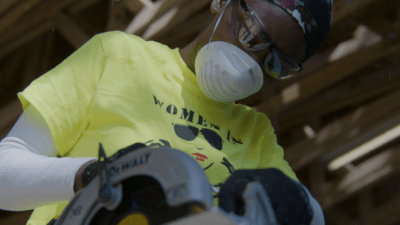

Comments